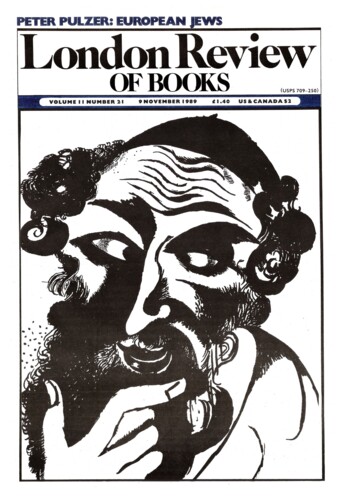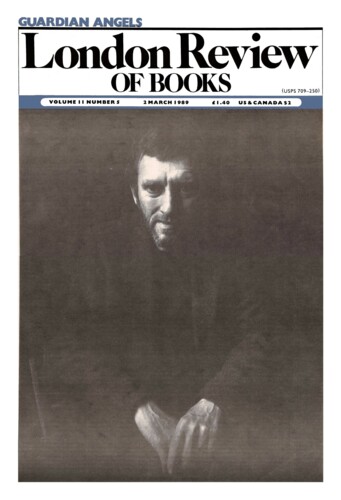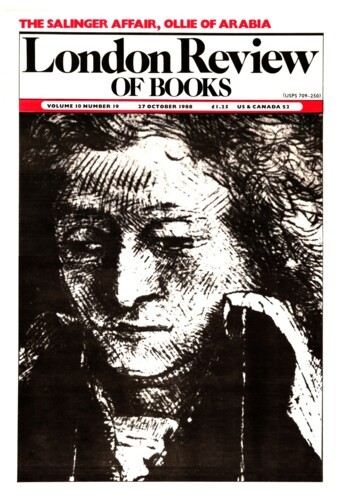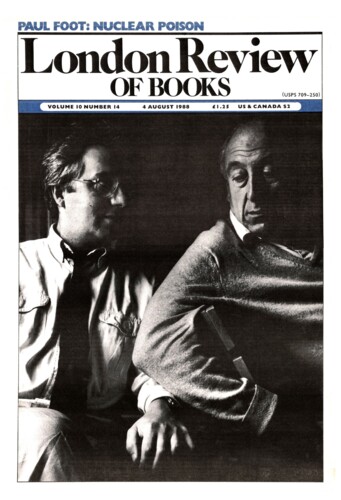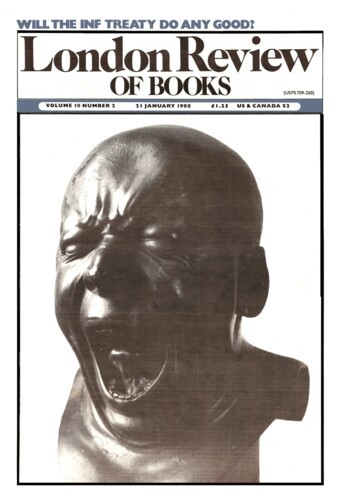Effervescence
Alan Ryan, 9 November 1989
Whatever else the French Revolution was it was certainly a literary event. Indeed, it was a literary event in a good many different, though related ways. As Robert Darnton has emphasised, it was a literary event in that it unlocked the printing presses and called forth a torrent of newspapers, periodicals, pamphlets and essays. Where France possessed no uncensored newspapers before 1789, almost two hundred journals of news and opinion appeared in that year and more than three hundred the next. It was also a literary event in quite another sense. The revolutionaries themselves felt impelled to create a new language to describe and sustain their new world. To emphasise the completeness of the Revolution’s break with the past, the regions of France were redefined and renamed, units of measurement were redefined and renamed, the names of the days and the months were changed, while the King of France was first renamed ‘the King of the French’ and finally ‘Citizen Capet’. It was a literary event in another sense, too. Controversialists on every side tried self-consciously to attain a rhetorical pitch appropriate to their commitment. Burke, Paine and Mary Wollstonecraft, as much as Brissot, Danton and Robespierre, tried to seize the stylistic initiative as much as the political initiative, or more accurately as part of seizing the political initiative. This wasn’t simply a matter of the struggles among revolutionaries taking the form of pamphlet wars and news manipulation. There was a real intellectual issue at stake – how to characterise political and social upheavals of a wholly unparalleled kind.’
